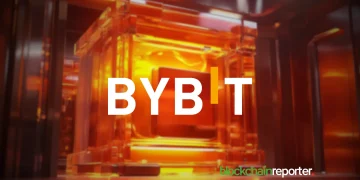On June 16, 2020, the FBI report revealed that cybersecurity complaints have jumped from 1,000 a day before the Covid-19 pandemic to about 4,000 a day during the crisis.
Presenting the findings to a U.S. House meeting on illegal digital activities, Representative Emanuel Cleaver remarked that there had been a significant jump in online crime this year.
The FBI report says that since the beginning of the COVID-19 pandemic broke out a few months ago, and numerous hackers have attempted to cash in on people’s daily activities moving online.
Malicious actors have particularly honed in on malicious emails that highlight coronavirus to trick an individual into clicking on a dangerous link.
Health agencies, including the World Health Organization (WHO), have also been targeted by hackers in recent months, along with hospitals and other health care groups amid the pandemic.
Crypto Exchange Hacks on The Rise
During the congressional hearing on illegal digital activities, VMware’s head of cybersecurity strategy, Tom Kellermann, singled out the finance industry, explaining that the sector had seen a 238% increase in digital crimes since the beginning of 2020.
Kellerman also mentioned an upsurge in crypto exchange hacks and leaks, explaining that malicious actors use these platforms as a means of laundering money, in tandem with the dark web and anonymous digital assets.
“Dark web forums enabled by anonymous virtual currencies have created a bazaar for criminals and organized crime to reach a global market,” Kellerman revealed.
The VMware cybersecurity head added that the danger in cryptocurrencies is that they offer true or relative anonymity, which raises the necessity of increased regulation for digital money.
As a possible solution, Kellerman mentioned several proposed regulatory actions that could be implemented to curb the illicit use of digital money.
Will Regulation Help Curb Crypto Scams?
The most recent studies conducted by blockchain analytics firm Chainalysis show that less than 1% of exchange-based bitcoin transactions involve illegal activity.
Despite this low rate, Chainalysis notes that a possible solution to the nagging problem of illicit activity in the sector can come from more informed regulation and better enforcement of regulation by exchanges.
Similarly, Heath P. Tarbert, the chairman of the Commodity Futures Trading Commission (CFTC), believes that regulators should establish a framework for sound crypto regulations that would legitimize digital assets and reduce criminal elements in the system.
However, Harbert advised U.S. regulators to take a tailored approach to regulate crypto, insisting that applying overly prescriptive rules could stunt the development of this important market.























